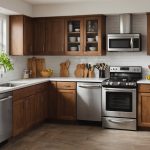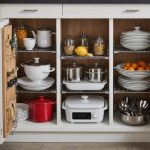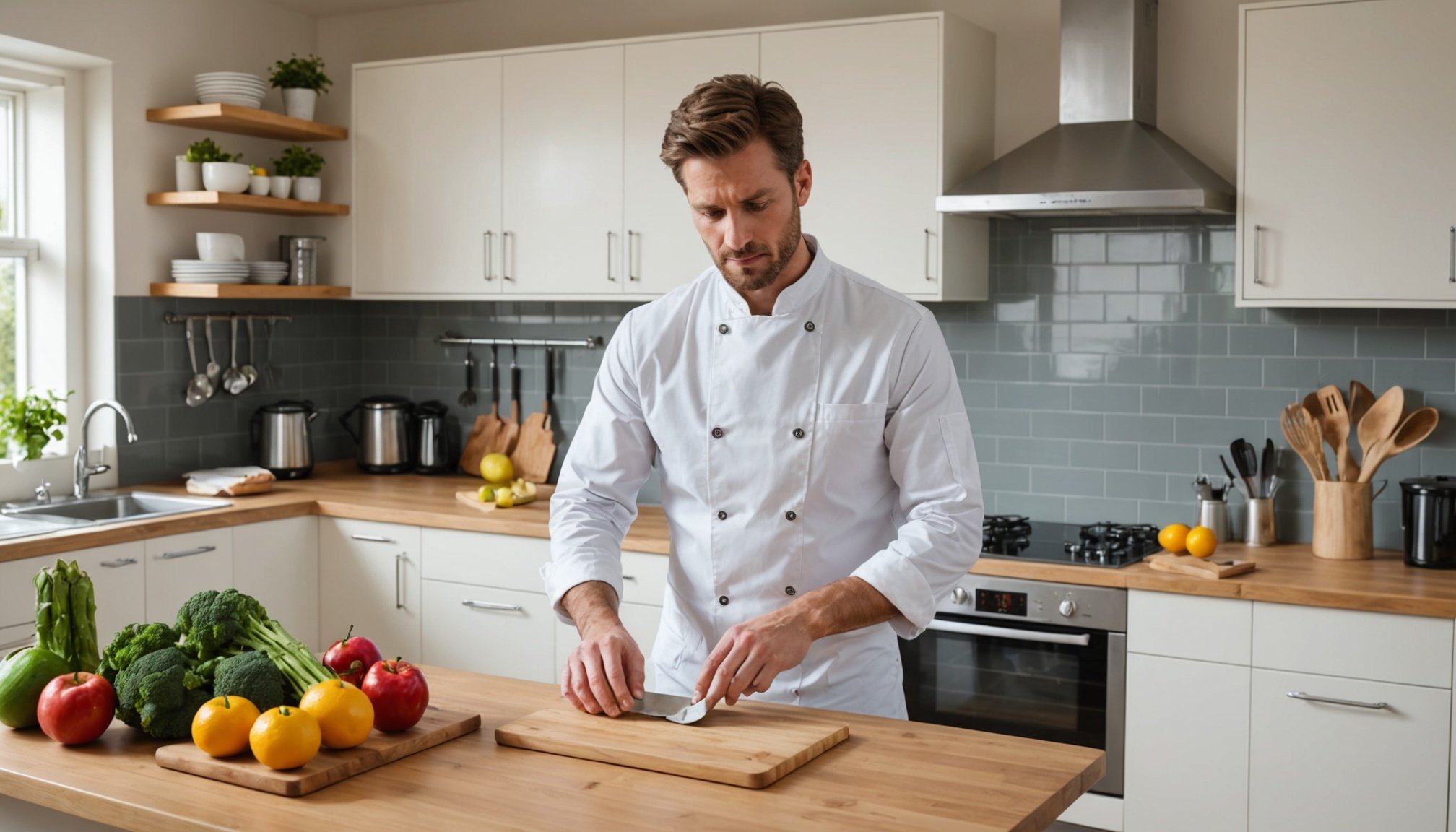In the bustling heart of every UK household, the kitchen stands as a central hub of activity, where meals are prepared, conversations flow, and memories are crafted. Yet, with the continuous hustle and bustle, maintaining its cleanliness and hygiene can often become an uphill task. As the festive season approaches, and life becomes increasingly hectic, ensuring that your kitchen remains a safe and healthy environment is paramount. This article will guide you through practical steps, professional insights, and effective strategies to keep your kitchen spotless, ensuring that your family’s well-being remains a priority.
Understanding the Importance of Kitchen Hygiene
Kitchen hygiene is not merely about keeping the surfaces sparkling; it’s about ensuring that the food we prepare and consume is free from harmful bacteria and germs. In busy households, where cooking is a daily ritual, cleanliness becomes a key component of health and safety.
This might interest you : How can I create a cozy and inviting atmosphere in my UK kitchen?
Recognizing Hidden Risks:
Many of us might be unaware of the hidden dangers lurking in our kitchens. From sponges harboring billions of bacteria to cutting boards becoming breeding grounds for cross-contamination, the risks are many. Ignorance is not bliss here; understanding these potential hazards helps us mitigate them effectively.
Setting High Standards:
Establishing a routine of cleanliness ensures that hygiene standards are consistently met. Implementing a detailed cleaning schedule for different kitchen areas and equipment can be a game-changer. This includes daily tasks like wiping down counters and floors, alongside weekly deep cleans for appliances like ovens and refrigerators.
In the same genre : How can I optimize my kitchen workflow for better meal prep in a UK household?
Involving All Members:
Keeping the kitchen clean shouldn’t fall on one person’s shoulders. It is crucial to involve every family member, including children, in the cleaning process. This not only distributes the workload but also instills a sense of responsibility and ownership amongst all.
Professional Help:
In scenarios where maintaining cleanliness becomes overwhelming, consider seeking professional cleaning services. They ensure a comprehensive deep clean using the right products that will leave your kitchen not just clean but truly hygienic.
Effective Cleaning Strategies for Busy Kitchens
Implementing effective cleaning strategies is essential for managing the hygiene of a busy kitchen. These strategies can help transform your kitchen into a safe haven for food preparation.
Daily Rituals:
- Surface Maintenance: Wipe down all surfaces with an antibacterial cleaner after every meal preparation. This includes countertops, stovetops, and tables.
- Floors: Sweep up food crumbs immediately and mop the floor daily to prevent sticky residues.
- Sink Duties: Keep the sink clean and unclogged by rinsing it with hot water and a small amount of bleach daily.
Weekly Deep Cleaning:
- Appliances: Clean your oven, microwave, and refrigerator thoroughly once a week. Remove old food from the fridge and wipe down the shelves with a mild disinfectant.
- Cutting Boards and Utensils: Wash all utensils with hot, soapy water and sanitize cutting boards to prevent cross-contamination.
Product Selection:
Choosing the right cleaning products is crucial. Opt for environmentally friendly cleaners that are non-toxic but effective. This aligns with reducing chemical residues and keeps the environment safe.
Incorporating Technology:
Automation can be a lifesaver in a busy kitchen. Invest in a reliable dishwasher or a robotic vacuum cleaner to handle some of the cleaning tasks with ease.
The Role of Staff in Maintaining Hygiene
In a larger household or a commercial setting, staff play a significant role in maintaining kitchen hygiene. Their efficiency and adherence to established standards ensure that the kitchen remains in top-notch condition.
Training and Orientation:
It’s vital to provide comprehensive training to ensure that staff members are well-versed in health and safety protocols. Regular workshops on the latest cleaning techniques and safety standards can empower them with the necessary knowledge.
Task Delegation:
Effective delegation of tasks is key to maintaining efficiency. Assign specific cleaning duties to each member to ensure that all areas receive the attention they need without overwhelming any individual.
Incentivizing Good Practices:
Consider implementing a reward system to encourage staff to adhere to hygiene protocols. Recognizing and rewarding diligent work fosters a positive work environment and motivates continued excellence.
Communication:
Maintain open lines of communication to ensure that any issues related to hygiene are immediately addressed. Encourage staff to report any problems with cleaning equipment or any potential safety hazards they notice.
Periodic Assessments:
Regular inspections and assessments can help identify areas for improvement. These assessments can be conducted internally or by hiring an external auditor to provide valuable insights.
Ensuring Long-term Safety and Hygiene
Maintaining a clean kitchen is an ongoing process that requires dedication and consistency. Long-term safety and hygiene can be achieved by integrating some key practices into your daily routine.
Adopting a Routine:
Create a cleaning schedule that outlines daily, weekly, and monthly tasks. Sticking to this schedule ensures that no task is overlooked, and every aspect of kitchen hygiene is covered.
Regular Pest Control:
Pests can be a significant threat to kitchen hygiene. Schedule regular pest control treatments to keep your kitchen safe from infestations.
Food Safety:
Implement food safety practices by ensuring that perishable items are stored correctly. Use airtight containers and keep track of expiry dates to prevent foodborne illnesses.
Evaluating Equipment:
Regularly check all kitchen equipment for wear and tear. Faulty equipment can be a breeding ground for germs and bacteria.
Feedback Loop:
Encourage feedback from all household members or staff to identify areas that need attention. Their insights can provide valuable perspectives on improving hygiene practices.
Conclusion: Keeping It Clean and Safe:
In conclusion, maintaining a clean and hygienic kitchen in a busy UK household is not an impossible feat. It requires meticulous planning, effective strategies, and the collective effort of everyone involved. By prioritizing hygiene, we ensure that our kitchens remain safe spaces for culinary creativity and family bonding. Let’s cultivate a culture of cleanliness that guarantees health and happiness for our loved ones.











